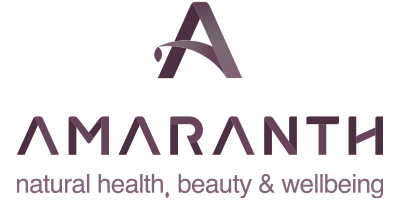Tips for Teenage Health

In addition to a little understanding, there is more we can do to support our teens through this time of vast change and development. Essential nutrients and general diet can have a profound impact. In this blog, I’ll try and give a few suggestions, specifically focusing on:
- The essentials for teenage health
- Anxiety and mood
- Skin health
- Energy, Fatigue and Sleep
- Focus and concentration
- Periods and the monthly cycle
Teenage Essentials
At any age, diet plays an important role. Nutritious wholefoods can provide vitality and longevity whereas processed and sugary foods can contribute to sluggishness and fatigue and may be a trigger for a host of health concerns. Specifically to teenage health, many foods contain vitamins and minerals that have a calming effect on the body, whilst, other foods and drinks, can have a stimulating effect. Research has shown that the areas of the brain that respond to reward are heightened in teenagers. Add this to the vast array of marketing for fast food, sweets and fizzy drinks and it is no wonder that our teenagers are consuming these nutrient void foods in large amounts.
As much as I would love them to, my children are not tucking into lentil stew, cabbage and kale. They are very suspicious of anything I make for them and can generally be found at Subway or Pizza Express. My approach is to do what I can when I can. I try to ensure that they have something in the morning – a smoothie or natural yoghurt with fruit and then I make a meal in the evening which is ready to be heated for whatever time they may appear. In my opinion this is the time when nutritional supplements can really make a difference. A good multi-vitamin will help to provide essential nutrients that may not be included in day to day diet. Multi vitamins vary in quality and nutrient absorption. A small round supermarket tablet is hardly worth taking and these supplements give all supplements a bad name. My favourites are Wild Nutrition Bespoke Teen Boy or Bespoke Teen Girl. (advanced supplements that are grown in food form to maximise the absorption). I also highly recommend Viridian Nutrition Virdikid which has smaller capsules or Viridian High Five Multi after the age of 16. A recent scientific analysis of eight studies found that multivitamin and mineral products, especially supplements containing higher amounts of B vitamins, reduced feelings of fatigue, stress, anxiety and confusion and also improved mood and general wellbeing (1).
In addition I give my boys omega 3 fish oil in either capsules or liquid (I use either Viridian Organic Scandinavian Trout oil or Eskimo 3, both high strength and pure fish oils which is a consideration given the pollutants in today’s sea water). Teenage years are significant for brain development and as the human brain is nearly 60 percent fat, fatty acids are among the most crucial molecules that determine the brain's integrity and ability to perform (2). Essential fatty acids (EFAs) cannot be synthesized by the body and must be obtained from dietary sources. If your teenagers are not eating oily fish such as salmon a couple of times a week, along with nuts or seeds on a regular basis, then my opinion is that supplementation of EFAs is important. Vegan and vegetarian omega 3 essential fats are available.
Mood and Anxiety
Anxiety can be a major concern in teenagers and this can be heightened by social pressure, monthly hormone changes (particularly in girls) or exams.
The mineral magnesium is often referred to as nature’s tranquilizer. Magnesium is found in green leafy vegetables, beans, lentils, nuts and seeds so if your teenager is not eating many of these they may have a magnesium deficiency. Magnesium is thought to support healthy brain functioning by binding to, and stimulating receptors of GABA, an anti-anxiety neurotransmitter. GABA helps to relax our brain by reducing excessive neural activities which, in turn, helps to soothe anxiety.
The amino acid L Theanine, (found in green tea) and the herb lemon balm may also be helpful. L Theanine has been found to promote a relaxed by alert mental state. Try Viridian L Theanine and Lemon Balm or Higher Nature Worry Not spray which is in a convenient spray that can be used as needed.
Low mood and depression are a major concern in teenagers. Magnesium and B Vitamins have again been found to be beneficial due to their role in helping to produce neurotransmitters such as serotonin (know as the happy hormone). The amino acid tryptophan (found in turkey, chicken, seeds and beans) is also essential for the production of serotonin.
The herb saffron has been the subject of some interesting research into depression. Several clinical trials have observed a significant improvement in patients with mild to moderate depression, when supplementing with extracts of saffron. Studies have revealed that saffron can be just as effective as some commonly prescribed anti-depressants, but significantly better tolerated and without any usual side effects(3). Have a chat with our nutrition team about the options for saffron supplementation for your teenager.
Energy and Sleep
So we know that teenagers like to stay up late and are not good at getting out of bed. If energies stay low throughout the day though, this can be a sign of nutrient deficiencies. Back to magnesium, according to recent research, a deficiency in magnesium may be one reason why your teenager is fatigued and lethargic (4).
Iron deficiency can also be a problem, particularly in teenage girls if heavy periods are an issue. A blood test from the GP will help identify if iron supplements would be beneficial. If you are considering iron supplements, you can chat to our nutrition team who can explain the different forms available so that you can maximise absorption and avoid the common side effect of constipation. Vitamin B12 is also a consideration, especially in vegan diets.
There are other common energy zappers including a diet high in sugar and refined carbohydrates. These foods cause spikes in energy followed by a slump which can cause tiredness, mood swings and lack of focus and concentration. The lack of a good quality sleep is of course also a factor. Devices such as smartphones, tablets, and TVs emit electromagnetic fields that can affect our body’s natural rhythms.The average person checks their phone over 10,000 times a year. Overexposure to mobile phones may affect our sleep quality, according to research.This research observed that mobile phone usage resulted in lower levels of melatonin – the hormone we produce to regulate sleep (5).
Skin
During puberty, hormonal changes may trigger the onset of acne. The good news is that in many cases, teenage acne can be improved without the need for harsh medications. Diet is important. High sugar and refined carbohydrate foods (known as high GI foods which include (chocolate, white rice, white bread, fruit juice, energy drinks and refined cereals) cause elevated raise blood glucose levels and increased insulin levels which have been associated with acne. A recent study found that a low GI diet (including wholefoods, vegetables, and protein) decreased a marker known as IGF-1 which is a factor in the development of acne (6).
Supplementation with specific probiotics may also be helpful, in particularly the well researched Lactobacillus Rhamnosus GG (LGG). There is a known relationship between the skin and the gut-skin, LGG colonization in the gut may contribute to normalised skin expression of genes, resulting in reduction of acne and skin problems (7)
Focus and Concentration
Back to the teenage brain. There is a biological reason that teenagers can appear to struggle to focus and concentrate. The area of the brain responsible for making decisions and multi-tasking – the prefrontal cortex, operates less efficiently than an adults as this part of the brain is still developing into the 20’s. We may still however be able to give extra support to provide the brain with the nutrients that it needs for processing and developing. Choline is a vitamin like nutrient that is found in eggs, meat, mushrooms and green leafy vegetables. Choline is precursor to the neurotransmitter acetylcholine which is associated with memory, learning and cognition. As mentioned previously, the brain also requires essential fatty acids which we gain from the diet in the form of omega 3. A type of omega 3, DHA, has been associated with an improvement in memory and reaction time in young adults (8). Eskimo fish oil contains good levels of DHA and so may be worth considering if your teenager is struggling with concentration. A further supplement to consider is Higher Nature Concentration Support which contains choline along with vitamins B3, B6 and B12 which contribute to the normal functioning of the nervous system and B5 which contributes to normal mental performance and the reduction of tiredness and fatigue.
Periods and Monthly Cycles
Monthly periods can bring different symptoms for different people but mood swings, bloating, cramps, breast tenderness, and irritability (collectively known as PMS) are common. If your teenager struggles with very heavy periods it is worth a trip to the GP for their advice. A.Vogel Agnus castus is a licensed herbal remedy which can be used to help relieve symptoms of PMS.
Saffron, magnesium and B6 may also be helpful. In one study, 15mg of Saffron extract taken twice daily for two cycles significantly reduced symptoms of PMS, especially emotional symptoms. Magnesium and vitamin B6 have also been shown to reduce PMS symptoms including cravings, fluid retention and anxiety in a number of studies.
Contact us at hello@amaranth-wellbeing.com or 0161 439 9856
References
(1) Viridian Nutrition https://www.viridian-nutrition.com/blog/energy-and-fatigue/top-5-energy-nutrients
(2) Essential fatty acids and the human brain (https://www.ncbi.nlm.nih.gov/pubmed/20329590)
(3) Akhondzadeh S, Fallah-Pour H, Afkham K, et al. Comparison of Crocus sativus L. and imipramine in the treatment of mild to moderate depression: a pilot double blind randomized trial. BMC Complement Altern Med 2004;4:12.
(4) De Baaji JH, Hoenderop JG, Bindels RJ, 2015, Magnesium in man: implications for health and disease. Physiol Rev.95(1):1-46. doi: 10.1152/physrev.00012.2014.
(5) Shrivastava A, Saxena Y. Effect of mobile usage on serum melatonin levels among medical students. Indian J Physiol Pharmacol. 2014 Oct-Dec;58(4):395-9.
(6) A Low Glycemic Index and Glycemic Load Diet Decreases Insulin-like Growth Factor-1 among Adults with Moderate and Severe Acne: A Short-Duration, 2-Week Randomized Controlled Trial. https://www.ncbi.nlm.nih.gov/pubmed/29691143
(7) Fabbrocini G, Bertona M, Picazo Ó, Pareja-Galeano H, Monfrecola G, Emanuele E.Supplementation with Lactobacillus rhamnosus SP1 normalises skin expression ofgenes implicated in insulin signalling and improves adult acne. Benef Microbes.2016 Nov 30;7(5):625-630.
(8) DHA supplementation improved both memory and reaction time in healthy young adults: a randomized controlled trial. Stonehouse W1, Conlon CA, Podd J, Hill SR, Minihane AM, Haskell C, Kennedy D
(9) Viridian Nutrition : PMS A Natural End to the Monthly Blues https://www.viridian-nutrition.com/blog/womens-health/pms-a-natural-end-to-the-monthly-blues
